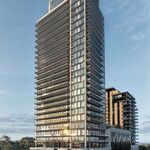Eug
Senior Member
The data does suggest sales volume decreased, but mainly because of decreased affordability. Why decreased affordability? Not because of an increase in home prices, but due to the added cost of the tax. Given a total maximum amount for affordability for a buyer, the added cost of the tax limits what a buyer can spend for the actual sale price of the home.
However, data from CD Howe suggests the the effect is worse at the lower price points than the higher price points, suggesting that in the higher priced markets, buyers are less sensitive to the tax than at the lower price points, ie. first time home buyers.
---
BTW, this thread started at the beginning of November, 2009.
The Teranet House Price Index was 118.27 for Oct. 2009, and is now 165.20 as of the end of 2014.
That means average prices have increased 40% (!) since this thread started.
---
Also BTW, home build costs have also increased significantly in that time period. Between my quote in 2014 and my quote in 2007 my home build cost was estimated by the insurer to have increased by around 30%. (I'd have to check that to make sure, but it's in that ballpark.) I disputed that, so they actually sent a real appraiser out to my house for the second time 7 years later. (They allowed that added appraisal because although I was with the same insurer, I was switching underwriters as I got a new discount through my workplace, so they could justify the formal re-appraisal.)
It turns out the appraiser was the exact same guy that did my appraisal 7 years earlier. Now, I had had some renovations done in the interim so that affects the numbers, but he said that since the renos were to the basement with no additions, the amount wouldn't change that much as compared to if I had kept everything the same. IIRC the new appraisal came in about 28% more than my original one, after 7 years, so pretty close to my insurer's original sight-unseen paper estimate.
So even if we were to take a conservative estimate, after 5 years and a bit we'd expect a home build to have increased around 20% in cost. What that means is that say a detached home build in 2009 (when this thread started) cost $500000, by 2015 it should cost around $600000 for the same house just to build it. That doesn't consider land costs at all.
However, data from CD Howe suggests the the effect is worse at the lower price points than the higher price points, suggesting that in the higher priced markets, buyers are less sensitive to the tax than at the lower price points, ie. first time home buyers.
---
BTW, this thread started at the beginning of November, 2009.
The Teranet House Price Index was 118.27 for Oct. 2009, and is now 165.20 as of the end of 2014.
That means average prices have increased 40% (!) since this thread started.
---
Also BTW, home build costs have also increased significantly in that time period. Between my quote in 2014 and my quote in 2007 my home build cost was estimated by the insurer to have increased by around 30%. (I'd have to check that to make sure, but it's in that ballpark.) I disputed that, so they actually sent a real appraiser out to my house for the second time 7 years later. (They allowed that added appraisal because although I was with the same insurer, I was switching underwriters as I got a new discount through my workplace, so they could justify the formal re-appraisal.)
It turns out the appraiser was the exact same guy that did my appraisal 7 years earlier. Now, I had had some renovations done in the interim so that affects the numbers, but he said that since the renos were to the basement with no additions, the amount wouldn't change that much as compared to if I had kept everything the same. IIRC the new appraisal came in about 28% more than my original one, after 7 years, so pretty close to my insurer's original sight-unseen paper estimate.
So even if we were to take a conservative estimate, after 5 years and a bit we'd expect a home build to have increased around 20% in cost. What that means is that say a detached home build in 2009 (when this thread started) cost $500000, by 2015 it should cost around $600000 for the same house just to build it. That doesn't consider land costs at all.
Last edited:




